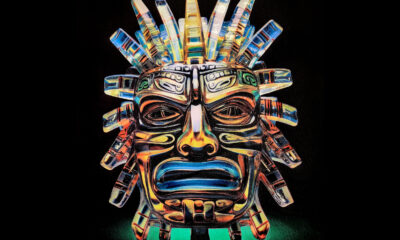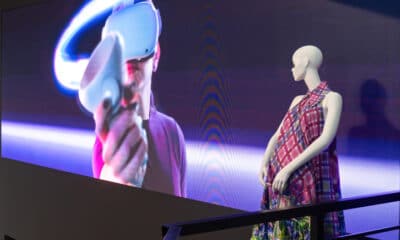The Olympics are upon us here in the land of ice and snow, and it’s not just athletes who compete and win when these games come to town. Squeegees race across mesh like speed skaters, silicon pads and embroidery needles pound out logos faster than a mogul skier, and the inkjet heads of thousands of printers zigzag like hockey players over anything that will hold an image.
The Olympics are upon us here in the land of ice and snow, and it’s not just athletes who compete and win when these games come to town. Squeegees race across mesh like speed skaters, silicon pads and embroidery needles pound out logos faster than a mogul skier, and the inkjet heads of thousands of printers zigzag like hockey players over anything that will hold an image.
Screen printers and other specialty imagers who decide to get connected to an event the size and duration of the Olympics can also find, gold, silver, and extra bucks for their bottom lines and an increase in business. And just like the Olympics, this is an international game. Canada may be hosting it, and local printers get a good chance at a lot of contracts, but the printers who create the branded visual backdrops and the mounds of logoed merchandising come from everywhere these days.
Screen printers who expect to get in on the traveling circus that is the Olympics have a number of ways to get involved. They need to work directly for the local organizing committee or as a sub-trade to sponsors and their on-site marketing teams. These are the official suppliers, and they can use all of the trademarked icons and phrases on event-related materials and myriad approved souvenirs.
Thousands of other entrepreneurs and smaller companies try to get in on the gravy train in the Vancouver/Whistler area through the back door. They are forbidden by law, and what seems like an army of lawyers, from using the Olympic rings, the word Olympics, or the phrase Vancouver 2010. But the opportunity to produce and sell merchandise to an estimated 1 million visitors over the month-long Olympic and Paralympic games is hard to resist.
Advertisement
It’s hard to get an exact idea of how much business the Olympics actually generate for British Columbia-based printers. The tags on a lot of the official clothing merchandise reveal overseas origins. It’s all kind of ironic and funny when you think about it. Hudson’s Bay Co., probably the first and oldest multinational department-store chain in the world, which started out trading for furs sourced from all over North America long before the United States or Canada existed, announced they sold more than 1 million pairs of red Olympic mittens featuring Canada’s maple leaf and the Olympic rings—synthetic and made in China—two months before the start of the games. Whoever got the embroidery contract on that won gold.
On the other hand, a quick check of the official merch pages on the 2010 Olympics Website shows a replica Olympic torch, fabricated by Bombardier in Quebec, with silk screening (blech!) on the presentation box and the torch itself. Not exactly local, but at least made in Canada. Some of the other wearable souvenir items were imprinted or embroidered here, including a large selection of Aboriginal-inspired artwork that uses iconic First Nations imagery. Groups of native artists coming down from their isolated villages and setting up large-scale craft markets on their own, right in the downtown. More power to them, and let’s hope the visitors can tell the difference between those and the knock-offs cranked out of Asia.
Local printers are, at least, cleaning up is in the signage and display-graphics sectors. In the last few years leading up to the games, the highway to Whistler was rebuilt, a new subway/elevated train line linked the airport and the downtown with stations all the way, we got a new convention center, and major sporting venues were erected or upgraded—all of which required new signage and wayfinding systems. Directional signage will sprout like grass on a newly seeded lawn leading up to and during the events, and rest assured every restaurant, hotel, or tourism-related business will make an effort, through visual advertising and signs, to attract the throngs roaming the streets before and after events.
I’d like to take this opportunity to warn any U.S. or foreign companies doing business with Canadians during the Olympic games to expect delays and communication blackouts coinciding with appearances by our national hockey team. Essentially, the country shuts down to watch. This may not be very professional, but it is normal. Regular office hours will resume after the games.

 Case Studies2 months ago
Case Studies2 months ago
 Art, Ad, or Alchemy2 months ago
Art, Ad, or Alchemy2 months ago
 Andy MacDougall2 months ago
Andy MacDougall2 months ago
 Columns3 weeks ago
Columns3 weeks ago
 Editor's Note3 weeks ago
Editor's Note3 weeks ago
 Marshall Atkinson3 weeks ago
Marshall Atkinson3 weeks ago
 Thomas Trimingham2 months ago
Thomas Trimingham2 months ago
 News & Trends2 months ago
News & Trends2 months ago
















